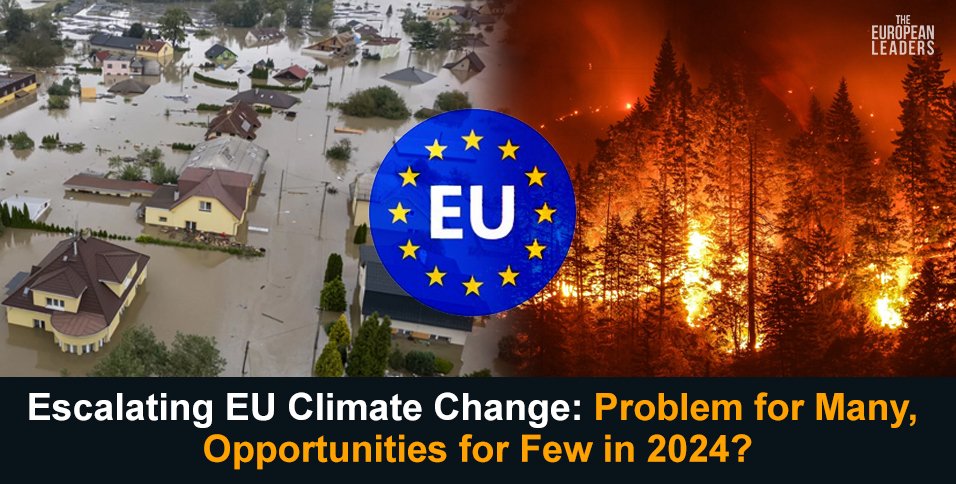The European Leaders
19 September 2024
Copenhagen – As the impacts of EU climate change accelerate, Europe faces increasingly severe consequences. From devastating floods to rampant wildfires, the continent is experiencing firsthand the growing risks of a warming climate.
The year 2024 has been particularly calamitous, with extreme weather events underscoring the vulnerability of communities and the urgency of adapting to these threats. The European Union’s climate policies are now in the spotlight, as they attempt to balance equity and resilience in their response.
Record-Breaking Disasters Across Europe
This year, EU climate change reached new heights, with Central Europe experiencing unprecedented flooding and southern nations battling large-scale wildfires.
In Central Europe, the flooding affected several countries, including Poland, Romania, Austria, and the Czech Republic, leading to economic losses that may exceed one billion euros. Thousands of residents were evacuated, and at least 22 people tragically lost their lives.
Similarly, wildfires in Portugal and Greece devastated northern regions, claiming six lives, including four firefighters. The fires engulfed over 10,000 hectares, leaving long-lasting economic and environmental damage in their wake. The unequal distribution of these climate impacts exposes the vulnerabilities of poorer regions, where disaster response and adaptation measures often lag behind.
Addressing Unequal Impacts
The disproportionate impact of EU climate change on vulnerable communities highlights a significant challenge. Lower-income populations are more likely to be affected by climate disasters and often have fewer resources to recover. This raises critical questions about the fairness of climate adaptation efforts across the continent.
Data reveals that weather-related disasters have cost Europe €560 billion between 1980 and 2021, emphasizing the need for better resource allocation to protect these at-risk groups.
EU’s Climate Strategy and Civil Protection Mechanism
In response to the escalating risks posed by EU climate change, the European Union and EEA have launched several adaptation initiatives. The EU Adaptation Strategy aims to make Europe climate-resilient by 2050, encouraging investments in infrastructure, nature-based solutions, and disaster risk reduction technologies.
Additionally, the EU activated its Civil Protection Mechanism to respond to the 2024 crisis, mobilizing €600 million in emergency assistance to support firefighting efforts and recovery operations.
Harnessing Innovation Amidst Climate Challenges
Though EU climate change presents immense challenges, it also spurs innovation in urban planning, green infrastructure, and sustainable practices. Urban areas are increasingly adopting solutions such as urban forests and sustainable drainage systems to mitigate climate risks.
This push towards resilience offers economic growth potential, especially in green job creation and the transition to sustainable industries. However, there are growing concerns that the benefits of this shift may only reach large corporations and wealthier communities, further widening social inequality.
The Road Ahead for Equitable Climate Solutions
As Europe navigates the complexities of EU climate change, ensuring that adaptation efforts are inclusive is paramount. Policymakers must prioritize equitable resource distribution and support community-led initiatives that engage vulnerable populations.
Inclusive strategies that provide targeted support for disadvantaged regions can help ensure that all citizens benefit from the transition to a climate-resilient future.
A Call for Collaborative Action
In 2024, EU climate change has proven to be both a significant threat and an opportunity for transformation. The future of Europe depends on a collaborative, inclusive approach that not only addresses the dangers of climate change but also promotes resilience for all.
The EU must continue to lead by example, ensuring that the most vulnerable are protected in the fight against climate change.








